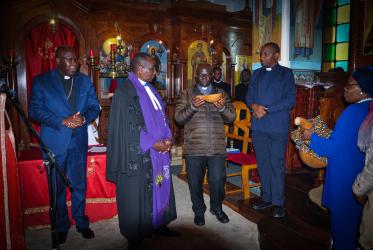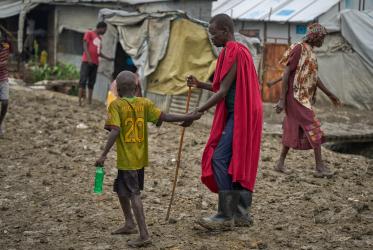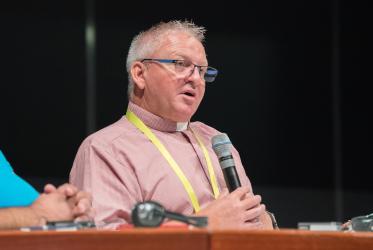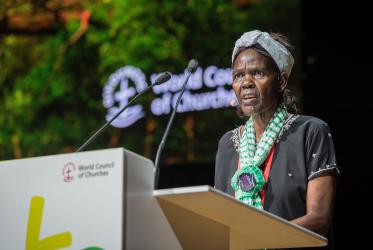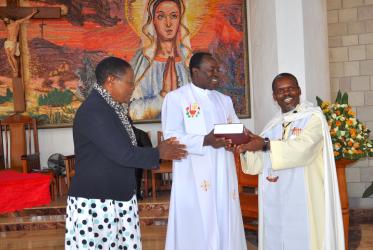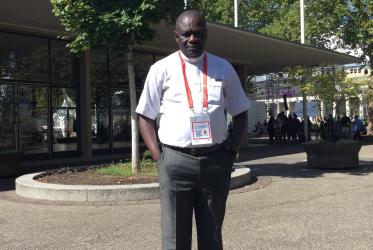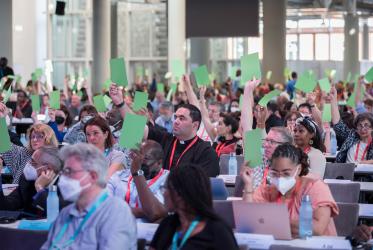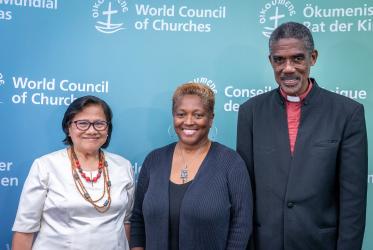Displaying 1 - 20 of 66
Christians in Kenya mark Week of Prayer for Christian Unity
23 January 2024
Churches in Africa agree on guidelines for disability inclusion
19 December 2023
Peace Pilgrim Agnes Abuom dies at 73
01 June 2023
Pandemic and pedagogy: what are the valuable lessons?
21 December 2022
Dear future steward
08 September 2022
WCC 11th Assembly elects new central committee
06 September 2022
Promoting human dignity through art
06 September 2022
Women with disabilities want to belong in churches
31 August 2022

